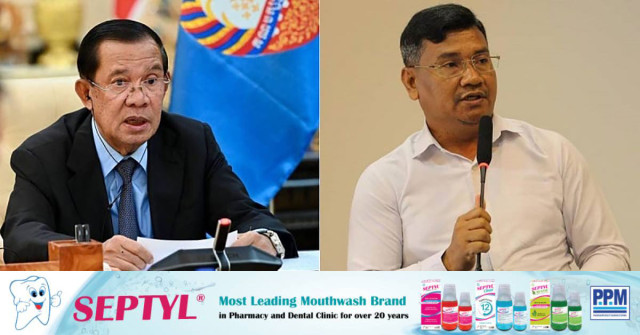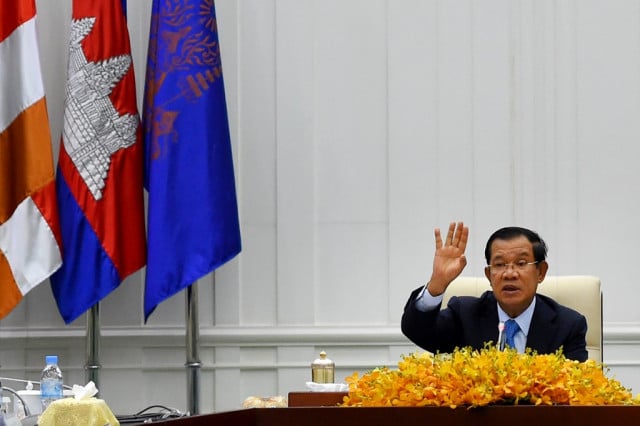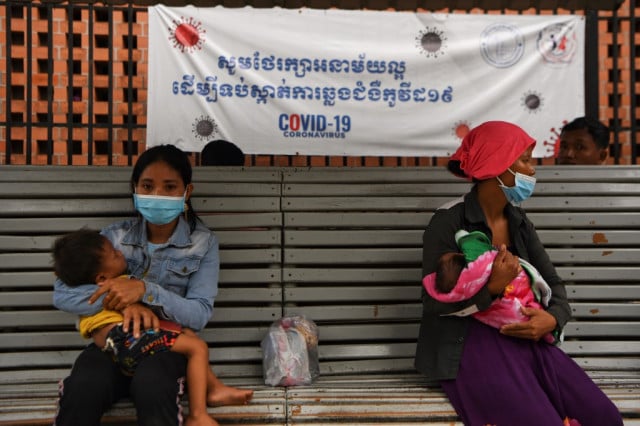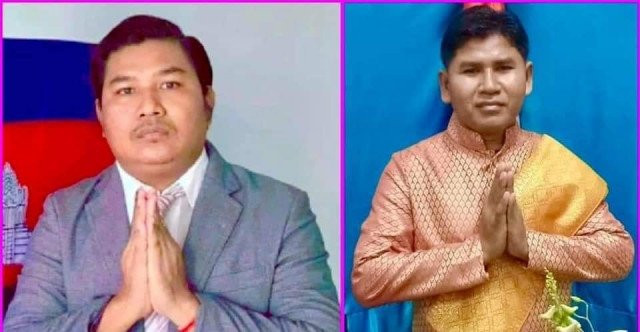Right Groups Hope for Fair Court Resolution on ADHOC’s Spokesman Lawsuit

- By Teng Yalirozy
- February 6, 2024 8:10 PM
PHNOM PENH – Following the filing of a lawsuit against human rights group ADHOC's spokesman, Soeng Senkaruna, for allegedly defaming the Cambodian People's Party (CPP), civil groups are hoping for a fair resolution from the court and calling for closer cooperation with the government to promote and improve human rights in the country.
On Feb. 5, CPP filed a lawsuit against Soeng Senkaruna, asking for a compensation of 2 billion riel (around $500,000) for allegedly making comments that dishonored the party and distorted the truth.
The contentious remarks were extracted from a story published on Feb. 2 by the Cambodia Daily Khmer, a U.S.-based publication.
In the interview, ADHOC’s spokesperson commented about the fact that Son Chhay, the vice-president of the Candlelight Party, will have to sell his house to pay the $1 million compensation he owes the CPP.
In 2022, Chhay was found guilty of libel by the Phnom Penh Municipal Court and instructed to pay 4 billion riel (around $1 million) in damages to the ruling party.
In the story posted by the Cambodia Daily Khmer, Senkaruna was quoted saying that the CPP has “always used courts as a barrier to oppress its opposition political partners”, adding that political parties should use “mature ways to compete with each other” and “stop the culture of threats against political members.”
While the Senate elections – after which Hun Sen is set to become president of the upper house – will be held on Feb. 25, the CPP lawyers said these remarks intended to provoke hatred and defame the party.
Am Sam Ath, deputy director at the Cambodian League for the Promotion and Defense of Human Rights (LICADHO), said he is dismayed that Senkaruna has been sued for expressing his opinions regarding certain political issues.
He stressed that Senkaruna has been giving comments to national and international media for 2o years, contributing to the improvement of human rights in Cambodia.
“Cambodia is a liberal and multiparty democratic country, so we want to see Cambodia become a country with the rule of law and where the citizens can enjoy their rights,” Sam Ath said. “Civil groups working on human rights want to work with the government to develop human rights and democracy as stated in the constitution, especially article 31.”
Article 31 of the Constitution establishes that Cambodia “shall recognize and respect human rights as stipulated in the United Nations Charter, the Universal Declaration of Human rights, the covenants and conventions related to human rights, women’s and children’s rights.”
By doing so, freedom of speech, as defined in Article 19 of the Universal Declaration of Human Rights, is part of Cambodia’s fundamental law.
“But Senkaruna’s freedom of expression has been violated”, Sam Ath said.
Soun Yuthyia, an advocacy director at the Cambodian Center for Human Rights (CCHR), said Senkaruna made independent comments without the intention to attack any sides but with the reflection of the current social and political situations.
“We hope that the court will make a judgment with common sense and independence and make sure that there are enough elements and evidence in the case,” said Yuthyia. “We will keep monitoring and observing the process and advocating for freedom of expression.”
Civil groups aim to partner with the government, observing and reflecting on their actions for improvement and constructive solutions.
“We have a clear vision and aim to achieve our goals by working together. I ask the government not to see civil groups as opponents, but as partners and mirrors that reflect the social situation,” he said.
Government Spokesperson Pen Bona said the government is already working closely with civil groups, pointing out that over 6,000 civil society organizations (CSOs) are operating in the country. If the government were not working alongside them, it wouldn’t have let them work, he said.
Regarding Soeng Senkaruna’s case, he said that CPP lawyers have thoroughly studied the incidents before filing a lawsuit, adding that the court makes a judgment based on facts and according to the law.
“The right to expression is defined by law. But people can’t use it to violate other’s rights and bring social disorder,” Bona said. “So the lawsuit cannot be interpreted as a way to repress freedom of speech.”
While the right to expression is guaranteed by law, Article 41 of the Constitution also states that “no one shall exercise this right [freedom of expression] to infringe upon the rights of others, to affect the good traditions of the society, to violate public law and order and national security.”















